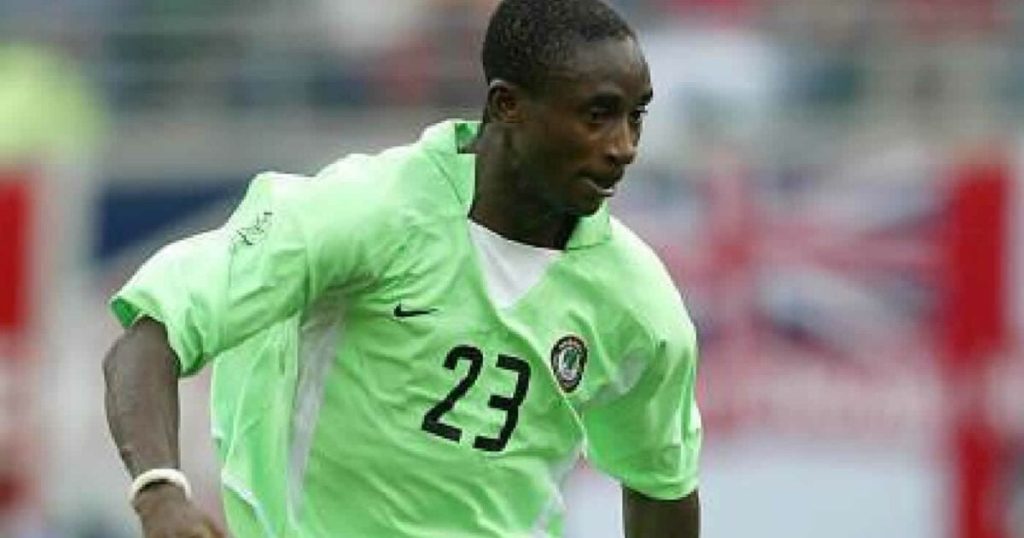Femi Opabunmi, a name etched in Nigerian football history as the youngest Nigerian and third youngest globally to grace the FIFA World Cup stage, reflects on a career tragically cut short. He recalls the heady days post-Under-17 World Cup, fielding offers from European giants like Saint-Étienne, Lyon, and Manchester United. Heeding his manager’s advice, he opted for Grasshopper Club in Switzerland, prioritizing regular playing time over the allure of big clubs’ reserves. His time at Grasshopper was a dream realized, a young Nigerian talent making waves in European football. However, this fairytale trajectory was abruptly halted by an eye condition, forcing an early and painful retirement. This setback, occurring at his career’s peak, was undeniably challenging, but Opabunmi maintains gratitude for life and the hope it holds.
The transition from professional football is often fraught with difficulties, and Opabunmi’s story is no exception. While his playing days yielded financial rewards, the brevity of his career, due to the unfortunate eye ailment, presented unique challenges. Unlike players with longer careers, he had less time to accumulate wealth and establish a secure post-football life. He emphasizes the importance of his story not as a plea for financial assistance but as a cautionary tale for aspiring footballers. Careers can be fleeting, injuries can strike unexpectedly, and planning for life beyond the pitch is crucial, regardless of perceived financial security.
The question of government support for retired footballers is a contentious one. Opabunmi acknowledges that while players were duly compensated during their active years with the national team, any post-retirement support from the government should be viewed as goodwill rather than an obligation. Players have a responsibility to invest wisely, recognizing that careers can be short-lived. While global football culture often celebrates ex-internationals, he believes governments are not indebted to former players. Any assistance provided should stem from a genuine desire to support those who have represented their nation.
Reflecting on the passing of former teammate Peter Rufai and Taribo West’s subsequent comments about the welfare of ex-internationals, Opabunmi defers to West’s experience and perspective. He interprets West’s message as a call for respect and recognition for Rufai’s service to the nation, emphasizing that such gestures transcend monetary value. The presence of government officials and sports administrators at Rufai’s funeral would have been a fitting tribute, acknowledging his contributions to Nigerian football.
Opabunmi observes positive changes in the Nigerian local league, noting improvements in competitiveness, both home and away. He also acknowledges the growth of football academies across the country, contributing to the development of young talent. While he recognizes the abundance of talent in the national team, he feels the commitment, discipline, and passion for the jersey are not what they once were. He highlights Victor Osimhen and Ademola Lookman as examples of players who consistently demonstrate these qualities, urging others to emulate their dedication and wholehearted approach to representing Nigeria.
Staying connected to the game, Opabunmi now serves as the sporting director of Fortune Football Academy in Ijebu Ode, Ogun State, partnering with former international Osaze Odemwingie. The academy’s focus is not only skills development but also life skills, emphasizing the importance of planning for a future beyond football. This resonates deeply with Opabunmi’s personal experience, having learned firsthand the unpredictable nature of a sporting career.
Looking back, Opabunmi’s primary lesson is the fragility of a football career. He stresses the importance of preparing for unforeseen circumstances, as injuries and other factors can abruptly end a player’s time on the field. He believes the key to strengthening Nigerian football lies in revitalizing grassroots development. He advocates for a return to the model of scouting talent from secondary school competitions like the Principal’s Cup, which he sees as crucial for building a solid foundation for the sport. He commends the current NFF’s efforts in nurturing young talent through the national U-17 team, optimistic about the future of Nigerian football.
While Opabunmi admits to previously harboring reservations about his son following in his footballing footsteps, due to his own experiences, he now recognizes his son’s right to choose his own path. He will offer guidance and support, but the ultimate decision rests with his son. His advice to aspiring footballers is simple yet profound: invest wisely during your playing days. The future is uncertain, and a secure financial foundation is paramount for navigating the challenges of life after football.
Ultimately, Femi Opabunmi desires to be remembered for his unique achievement: being the youngest Nigerian and third youngest player ever to participate in the FIFA World Cup. This record stands as a testament to his talent and potential, and he hopes it will one day lead to further opportunities and recognition. Despite the premature end to his playing career, his story serves as a valuable lesson for current and future generations of footballers, emphasizing the importance of preparation, resilience, and a long-term vision that extends beyond the boundaries of the pitch.














